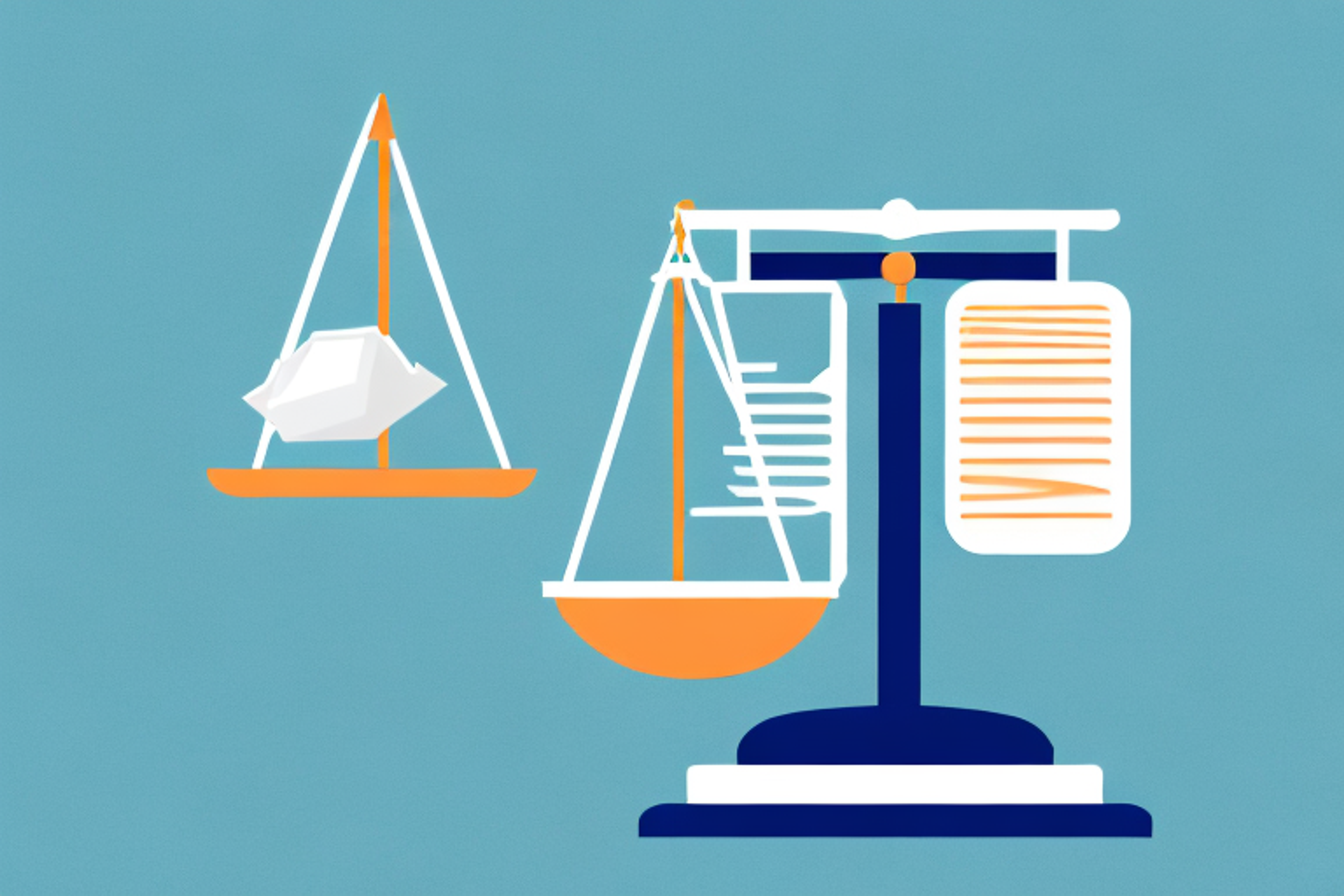How to Address a Low Undergraduate GPA in Your Law School Application
Are you worried about how your low undergraduate GPA will affect your chances of getting into law school? In this article, we provide practical tips and strategies for addressing this issue in your law school application.
Posted March 6, 2025

Table of Contents
Applying to law school can be a daunting task, especially if you are concerned about how your low undergraduate GPA may affect your chances of admission. It is important to acknowledge your low GPA in your law school application and understand its role in the admission process. However, a low GPA does not necessarily mean that you are not capable of succeeding in law school. In this article, we will explore strategies for overcoming a low GPA and highlighting your strengths to compensate for it in your law school application.
The Importance of Acknowledging a Low GPA in Your Law School Application
One of the first steps in addressing a low GPA in your law school application is acknowledging it. Do not try to hide or downplay your low GPA in your application. Admissions committees will see your transcript and will want to hear an explanation for the grades. Instead, take a proactive approach by addressing your GPA in your personal statement or addendum. Explain any extenuating circumstances or challenges you faced that may have contributed to your grades. Be honest and direct, but also focus on the steps you have taken to improve your academic performance and preparedness for law school.
Another important aspect to consider when addressing a low GPA in your law school application is to showcase your strengths in other areas. Highlight your extracurricular activities, work experience, and any other achievements that demonstrate your skills and potential as a law student. Admissions committees are looking for well-rounded candidates who can contribute to the law school community in various ways.
It is also important to note that a low GPA does not necessarily mean that you cannot get into law school. Many law schools consider a variety of factors in their admissions process, including work experience, personal statements, and letters of recommendation. Additionally, some law schools offer conditional admission or alternative admission programs for students with lower GPAs. Research your options and reach out to admissions counselors for guidance on how to best present yourself in your application.
Understanding the Role of a Low GPA in Your Law School Admission Process
Your undergraduate GPA is just one factor that admissions committees consider when evaluating your law school application. Admissions committees will also consider your LSAT scores, letters of recommendation, personal statement, and other relevant experiences and accomplishments. A low GPA can be a red flag, but it does not necessarily mean that you will be rejected from law school. However, it may mean that admissions committees will pay closer attention to other aspects of your application. Therefore, it is important to focus on highlighting your strengths and potential as a law student to compensate for a low GPA.
One way to showcase your strengths and potential is by taking additional courses or pursuing a post-baccalaureate program to demonstrate your academic abilities. Another option is to gain relevant work experience or participate in extracurricular activities that showcase your leadership, teamwork, and problem-solving skills. Additionally, it is important to address any extenuating circumstances that may have contributed to your low GPA, such as illness or family issues, in your personal statement or in a separate addendum. By taking these steps, you can demonstrate to admissions committees that you are a well-rounded and capable candidate, despite a low GPA.
Strategies for Overcoming a Low GPA in Your Law School Application
If you have a low undergraduate GPA, there are several strategies you can use to overcome it in your law school application:
Remember, these strategies are not a guarantee of admission to law school, but they can help demonstrate your potential as a law student.
Another strategy to consider is to address your low GPA in your personal statement. Use this opportunity to explain any extenuating circumstances that may have affected your academic performance, such as illness or family issues. Be sure to also highlight any strengths or achievements that demonstrate your potential as a law student.
Additionally, consider taking the LSAT and scoring well on it. A high LSAT score can help offset a low GPA and demonstrate your academic abilities and potential for success in law school.
Highlighting Your Strengths to Compensate for a Low GPA in Your Law School Application
One way to compensate for a low GPA is to focus on your strengths and highlight how they make up for your low grades. Consider what sets you apart from other applicants and emphasize those qualities in your law school application. For example, have you had relevant work experience, volunteered in your community, or possess unique skills that can contribute to the law school community? Be sure to highlight these strengths in your personal statement and resume.
Another way to compensate for a low GPA is to provide an explanation for why your grades were low. Perhaps you faced personal or medical challenges during your undergraduate studies that affected your academic performance. If this is the case, be sure to explain the situation in your application and provide any supporting documentation. Admissions committees may be more understanding of a low GPA if they know there were extenuating circumstances.
It's also important to showcase your dedication and commitment to your academic and professional goals. If you have taken additional courses or pursued certifications in your field of interest, be sure to include this information in your application. This demonstrates your willingness to improve and your passion for the field of law.
Tips for Writing an Effective Personal Statement with a Low GPA
Your personal statement is an excellent opportunity to address your low GPA and demonstrate your strengths as a law school candidate. Here are some tips:
Additionally, it's important to research the law schools you are applying to and tailor your personal statement to each school. Highlight specific programs, clinics, or professors that interest you and explain how they align with your career goals. This shows that you have done your research and are genuinely interested in attending that particular law school.
Demonstrating Your Potential as a Law Student Beyond Your Low Undergraduate GPA
There are several ways you can demonstrate your potential as a law student in your law school application, even if you have a low GPA. For example:
Additionally, you can also consider taking additional courses or certifications in areas related to law, such as political science, history, or business law. This can demonstrate your dedication to the field and your willingness to improve your academic performance. Furthermore, you can also seek out internships or shadowing opportunities with law firms or legal professionals to gain practical experience and knowledge of the field. These experiences can also provide valuable connections and references for your law school application.
Utilizing Extracurricular Activities and Work Experience to Supplement a Low GPA
Extracurricular activities and work experience can supplement a low GPA and demonstrate your potential as a law student. Law schools are looking for well-rounded candidates who will contribute to the law school community. Therefore, it is important to participate in extracurricular activities that are relevant to law school, such as debate or mock trial clubs, and demonstrate your leadership and commitment to social justice. Additionally, work experience in a legal setting or related field can show your interest in and preparedness for law school.
Moreover, volunteering for community service projects can also be a valuable addition to your law school application. Participating in activities such as pro bono legal clinics or volunteering at a non-profit organization can demonstrate your dedication to serving others and your commitment to making a positive impact in your community.
Furthermore, if you have faced any challenges or obstacles that have affected your academic performance, it is important to address them in your application. You can explain how you have overcome these challenges and how they have helped you develop important skills such as resilience and determination. This can show law schools that you are capable of handling difficult situations and can succeed in a rigorous academic environment.
Addressing Any Personal Challenges or Obstacles that Contributed to a Low Undergraduate GPA
If you have faced personal challenges or obstacles that contributed to your low GPA, it is important to address them in your law school application. Admissions committees understand that personal struggles can impact academic performance, and they will want to hear how you have overcome these challenges. Discuss any difficulties you have faced, and how you have overcome them to demonstrate your resilience and determination.
Seeking Professional Help and Guidance in Addressing a Low Undergraduate GPA
If you are struggling with a low undergraduate GPA, it may be helpful to seek professional help and guidance. Consider meeting with your academic advisor to discuss strategies for improving your grades, or seek assistance from a tutor. Additionally, there are many resources available to help you prepare for law school, such as LSAT prep courses and online resources. Don't hesitate to reach out for help if you need it.
Overall, a low undergraduate GPA is not the end of the road for your law school dreams. By acknowledging your low GPA, highlighting your strengths, and demonstrating your potential as a law student, you can increase your chances of admission to law school. Utilize the strategies and tips discussed in this article to craft an effective law school application that showcases your potential and commitment to success.












